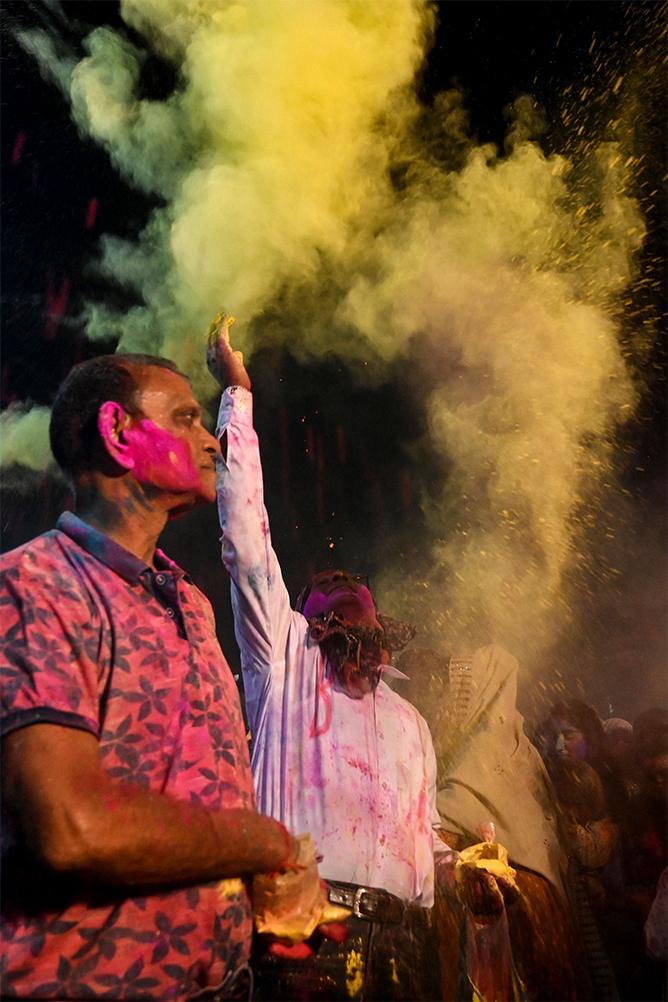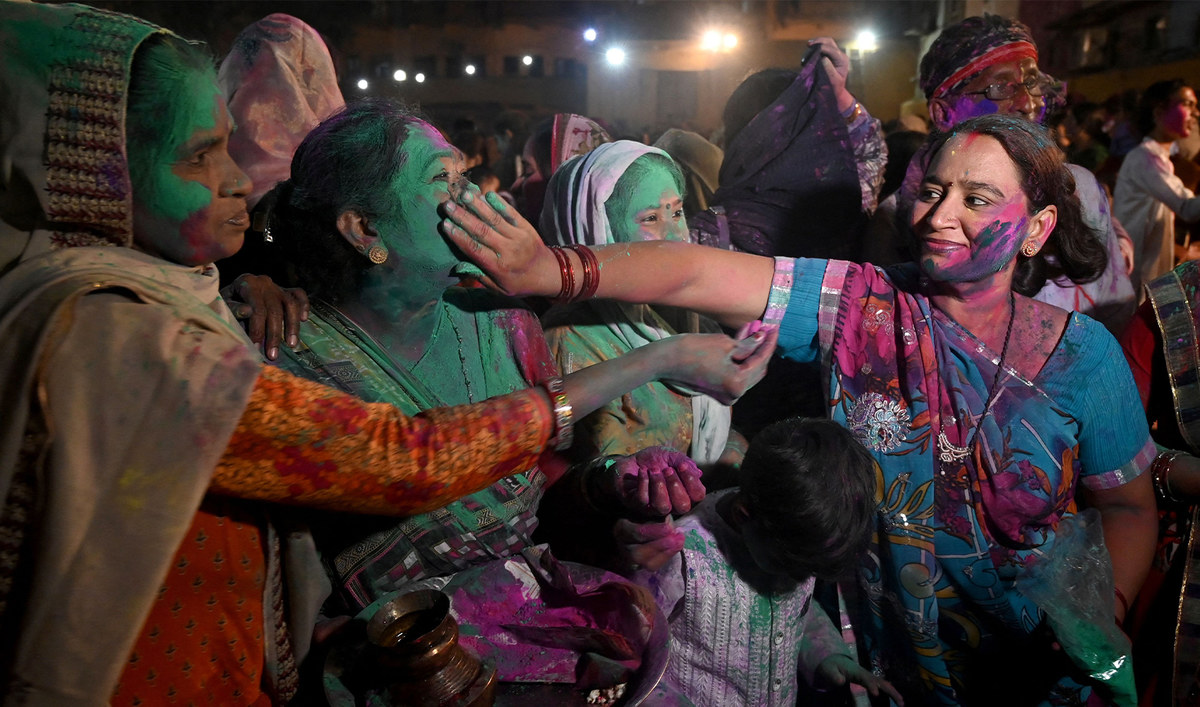ISLAMABAD: Hindus in Muslim-majority Pakistan are celebrating the Holi festival in Karachi today, Monday, with Prime Minister Shehbaz Sharif congratulating the minority community on the “festival of colors.”
The Hindu festival, which heralds the start of spring, is observed at the end of the winter season on the last full moon of the lunar month.
Non-Muslims make up a small fraction of the 241 million people in Pakistan. There are less than 2 million Hindus in the South Asian nation.
“As Pakistanis we take pride in the multi-ethnic, multi-lingual, multi-cultural and multi-religious characteristics of our society,” Sharif said in a message to Pakistan’s Hindu community.
“Let us commemorate this day with a resolve to celebrate our differences as strengths. May the arrival of spring bring new beginnings, hope, and happiness to us all. Happy Holi to all who celebrate!”

Hindus celebrate Holi, the spring festival of colors, at the Shree Swaminarayan Hindu Temple in Karachi, Pakistan on March 24, 2024. (AFP)
In Karachi on Sunday night, the eve of Holi, adult and child devotees celebrated by spraying colored powder solutions into the air and smearing it on each other’s faces. Water guns and water-filled balloons were used to play and color each other, with anyone and any place considered fair game for spraying.
Visitors to homes were served with Holi delicacies such as gujia, shakkarpaare, matri, and dahi-bada as well as desserts and drinks. People also gathered around a lit bonfire, symbolizing the victory of good over evil and removal of the old and the arrival of the new. Various rituals were performed around the fire such as singing and dancing.
“May God keep peace [in Pakistan] and like the Holi festival, may He bring colors of happiness to our lives, our community, Pakistani society, and the life of every citizen, bring colors of peace and prosperity and we stay away from adversity and calamity,” Hindu devotee Seema Maheshwari said on Sunday night as she celebrated Holi with her family.

Hindu women celebrate Holi, the spring festival of colors, at the Shree Swaminarayan Hindu Temple in Karachi, Pakistan on March 24, 2024. (AFP)
Another devotee Ritika Rani said festivals like Holi made a difficult life amid inflation and poverty more bearable:
“I think you all should celebrate Holi if possible, and enjoy the colorful life with different colors. Life is already very difficult but there are some ways by which we can make it colorful.”
With inputs from AFP

















